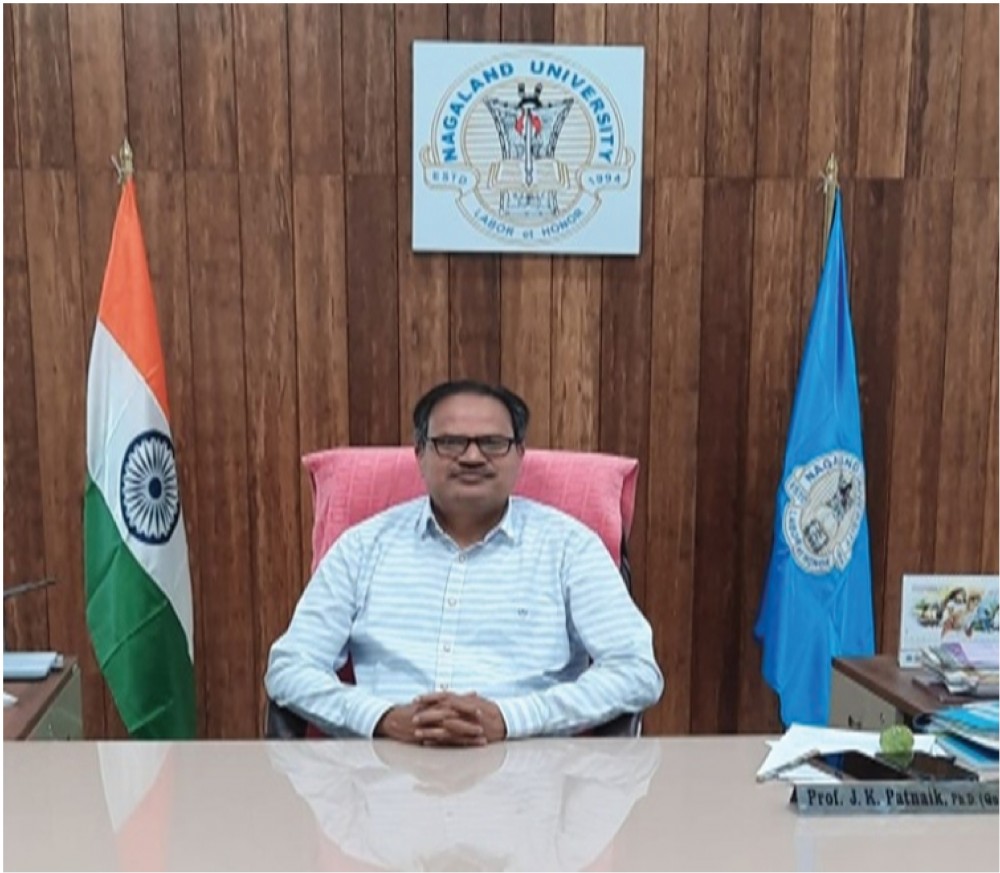Vice -Chancellor, Nagaland University Prof Jagadish Kumar Patnaik

Prof Jagadish Kumar Patnaik
Vice -Chancellor, Nagaland University
On the 29th of this month we are going to complete three years since the declaration of the National Education Policy (NEP) 2020 by the National Democratic Alliance (NDA) government at the centre. This policy came into being after a gap of 34 years.
In commemoration of the successful implementation of NEP 2020, the Prime Minister of India Narendra Modi is going to address the 2nd Akhil Bhartiya Shiksha Samagam on July 29 and 30, 2023 at ITPO, Pragati Maidan, New Delhi. Last year, the conclave was organised at Varanasi where Shri Modiji had also addressed.
While the entire country is geared up to implement the policy, Nagaland is also not lagging behind. There has been concerted effort on the part of each and every stakeholder to contribute one’s bit to bring the policy to a reality. The serious and dedicated contribution in the direction has been from the administrators representing the government, civil society and school and college teachers.
Everybody is aware of the fact that this policy is going to bring about a paradigm shift in the education ecosystem in the state of Nagaland and, for that matter, in the whole country. The main thrust of the NEP is vocational and skill-based education. By this we can empower our youth to be partners in the nation building project. India being a young country, we can take advantage of this dividend and become a knowledge super power by 2047.
There is no doubt that we in Nagaland are going step by step covering each component of the policy. For example, we were exempt for the last two years from national entrance test for admission to undergraduate program.
However, Nagaland University has already implemented the academic bank of credit (ABC). This is one of the important aspects of digitization process to enable multiple entry and exit by the student at different levels. Multiple entry and exit system offers the student the flexibility to take break from academia and engage in some hands on training through employment and get back to academics again. This system is, in fact, one of the key highlights of the policy.
Nagaland University’s Academic Council has approved for the implementation of Four-Year Undergraduate Program (FYUP) with effect from July 2023. This decision has been taken after a series of interaction and consultations with the stakeholders for implementation at the college level - the Principals, Higher Education Commissioner, Director and others.
There have been efforts on the part of the University to attend to each and every issue relating to implementation of the FYUP.
By bringing the Indian knowledge system into the curriculum, we help our children understand our rich tradition but also take it to the world stage. For example, a course on Naga Cuisine will not only make the younger generation educated about its importance but also can reach to the world through entrepreneurship and start up.
A course on the much-variegated nature of Naga art and culture can help our children to know about each other's customs and traditions. The cultural mosaic of Nagaland consisting of sixteen tribes shall be enriched with research and innovation undertaken by the academic community.
NEP 2020 underscores the importance of local language and literature. To revive Naga languages and literature, the University has established a Centre for Naga Tribal Language Studies.
Many colleges are offering Ao and Tenydie languages at the undergraduate level. These courses will have more takers with the encouragement from NEP 2020.
The whole idea is to take advantage of the transformation of the education ecosystem and enable our children relevant to the job market. By implementing this policy, we can make our children not only job seekers but job creators as well.



